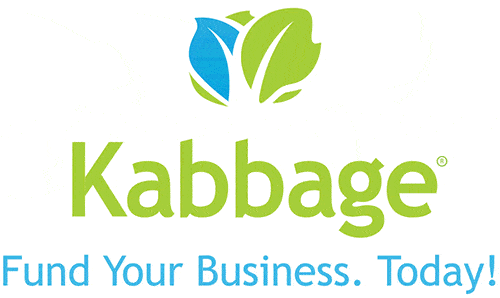Photo by CreditCafe
Your credit score and credit report can affect your business in profound ways. A low score, late payments, or errors on your credit report could mean that you pay higher interest rates—if you can get approved for credit in the first place. However, with free credit reports and free credit scores, you can better manage your finances. But first, there are some things you need to know and understand.
What Are Credit Reports and Who Uses Them?
A credit report has information on your current and past bill payments, debts, loans, and other types of financial and credit history. It can also show your current and past employment, residences, bankruptcy filings, lawsuits and judgments, and arrests.
Check your free credit reports on a regular basis to make sure that all of your account information and personal data are accurate. Also, watch for fraudulent activity. Your credit report can tell you if someone is trying to open accounts in your name, for example. Additionally, be aware of any inquiries or changes on your credit reports. Address and immediately correct any errors you find.
How to Get Your Credit Reports for Free
The United States government requires all three of the major credit reporting agencies (CRA’s) to offer consumers a free copy of their credit report every year. This means you are entitled to one free copy of your credit report from Equifax, Experian, and TransUnion every 12 months.
You can get all three free credit reports at the same time or you can space out your requests during the year. You can also receive a free copy of your credit report when you are denied credit or when you have other adverse effects based on your credit report.
To request free copies of your credit reports from any or all of the major reporting agencies simply go online to AnnualCreditReport.com and follow the instructions you find there. AnnualCreditReport.com is the only US government-authorized website that can provide you with your free credit report from the three CRA’s.
RELATED ARTICLE: HOW TO FIX YOUR CREDIT FOR BUSINESS LOANS
What Are Credit Reporting Agencies?
Credit reporting agencies (CRA’s)are businesses that collect a wide range of information about you, including:
- Where you live now or have lived in the past
- Your employment history and current employer
- Your current debts
- How you pay your bills
- Any lawsuits, past or present
- If you have an arrest record
- Whether you have ever filed for bankruptcy
Each of the CRAs compiles all of this data into a credit report. Then they sell that report to insurance companies, employers, creditors, rental property owners, and other entities.
These companies use the information in your credit report determine whether to extend credit to you, offer you a job, set the terms and rates of any loan or other credit products, or decide whether to rent a house or apartment to you. As we mentioned earlier, you are entitled to free credit reports annually.
What If Your Request for Your Free Credit Report Is Denied?
If you request your free credit report and you are denied even though you are eligible, directly contact the credit reporting agency that denied you.
Usually a CRA will deny a free copy of your credit report because of missing or inaccurate information. All you have to do then is correct this information on your application.
How to Correct Credit Report Errors
If you discover that your credit report has errors or inaccurate entries or accounts, write a letter outlining the errors. Send your letter to both the CRA and the organization that provided the inaccurate data.
Make sure to send along any supporting documentation, and keep copies of everything you send. Look online for samples of dispute letters to get you started.
This is also the strategy to use if you have questions or need to place a security freeze or fraud alert on your file with the CRA.
If the errors are not corrected within a reasonable amount of time after you have initiated a dispute in writing, contact the Consumer Financial Protection Bureau and file a complaint.
How to File a Complaint Against a Credit Reporting Agency
You can file a complaint about any of these entities with the federal government. There are a number of reasons why you might need to file a complaint, including:
- A CRA proposed to resolve a dispute but you are unhappy about their ruling
- Someone misused your credit report
- You have had no response about a dispute
- You experience issues with services that provide identity theft or credit monitoring
- Your credit report or credit score is inaccessible to you
If you want to file a complaint regarding a credit reporting agency, contact the Consumer Financial Protection Bureau.
Negative Credit Report Information
Your credit report can contain negative information about you. This can include lawsuits and judgments, tax liens, evictions, bankruptcies, and other public information.
Usually a CRA will keep negative information on your credit report for 7 years. However, there are some exceptions. Lawsuits and judgments generally stay on your credit report for 7 years. That is, unless the expiration date for the statute of limitation is longer. CRA’s report bankruptcies for 10 years and tax liens for 15 years.
If you have had adverse effects based on your credit report, the company or individual must provide you with the contact information for the CRA that supplied your credit report.
You can request a free copy of your credit report from the CRA within 60 days of the adverse action. If negative information in your credit report is accurate you cannot remove it.
What Are Credit Scores?
Your credit score is the number that rates the credit risk you pose at a specific time. It is calculated using the information in your credit report. This is why you should address any errors or inaccurate information in your credit reports as soon as possible.
If you have a higher score, you will have an easier time getting credit and at better terms. Landlords will be more likely to rent to you. What’s more, you will even pay less for insurance.
You may have a different credit score from each of the 3 major credit reporting agencies. In addition, some lenders and other companies may also utilize their own unique credit scoring system. This means you could have many different credit scores.
The annual free credit report that you are entitled to from the major agencies will not include your free credit score. However, you can access this number for a price. If you do, you’ll have access to information as well as suggestions for improving your credit score.
When you understand free credit reports and free credit scores, you can improve your finances and boost your chances for credit approval.


